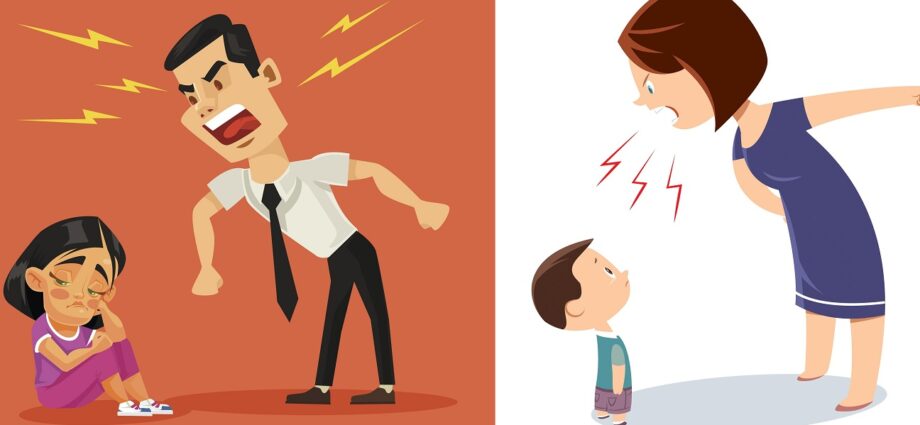Turinys
Kodėl tėvai šaukia vaiką: patarimai
Each young mother, remembering her parents or looking at angry mothers from the environment, once again made a promise never to raise her voice to a child: this is so uneducated, so humiliating. After all, when for the first time you picked up a touching lump that you wore for nine months under your heart, even the thought did not arise that you could shout at it.
But time passes, and the little person begins to test the strength of the set boundaries and seemingly limitless mother’s patience!
Raised communication is ineffective
The more often we resort to screaming for educational purposes, the less importance the child attaches to our tantrums, and therefore, the more difficult it is to influence him in the future.
Shouting louder every time is not an option. Moreover, each breakdown causes a loving mother a huge sense of guilt against the background of thoughts that something is wrong with her, that other “normal” mothers behave extremely calmly and know how to come to an agreement with their daughter or son in an adult way. Self-flagellation does not add self-confidence and certainly does not strengthen parental authority.
One careless word can hurt a baby so easily, and constant scandals over time will undermine the credit of trust.
Painstaking work on yourself
From the outside, the screaming mother looks like an unbalanced cruel egoist, but I hasten to reassure you: this can happen to anyone, and each of us has the power to fix everything.
Pirmas žingsnis to healing – is to acknowledge the fact that you lost your temper, got angry, but you are not satisfied with the usual form of expression of emotions.
Antrasis žingsnis – learn to stop on time (of course, we are not talking about emergencies when the baby is in danger). It won’t work right away, but gradually such pauses will become a habit. When the scream is about to break out, it is better to take a deep breath, assess the situation with a detachment and decide: will the cause of the quarrel matter tomorrow? And in a week, a month or a year? Is the puddle of compote on the floor really worth it for the baby to remember his mother with her face twisted with anger? Most likely, the answer will be no.
Do I need to restrain emotions?
It’s hard to pretend to be calm when there’s a real storm inside, but it’s not required. First, children feel and know much more about us than we used to think, and feigned indifference is unlikely to affect their behavior. And secondly, carefully hidden resentment can one day pour out a thunderstorm, so that restraint will do us a bad service. It is necessary to talk about emotions (then the child will learn to be aware of his own), but try to use “I-messages”: not “you are behaving disgustingly”, but “I am very angry”, not “again you are like a pig!”, But “I am extremely it’s unpleasant to see such dirt around. “
It is necessary to voice the reasons for your dissatisfaction!
In order to extinguish the outburst of anger in an “eco-friendly” way, you can imagine, instead of your own child, someone else’s child, whom you would hardly dare to raise your voice to. It turns out that for some reason you can use your own?
We often forget that the child is not our property and is completely defenseless in front of us. Some psychologists suggest this technique: put yourself in the place of the child who is being shouted at, and repeat: “I just want to be loved.” From such a picture in my mind’s eye, tears well up in my eyes, and anger immediately evaporates.
Inappropriate behavior, as a rule, is just a call for help, this is a signal that the baby is now feeling bad, and he simply does not know how to call upon parental attention in another way.
A tense relationship with a child directly indicates discord with oneself. Sometimes we cannot sort out our personal problems and we break down over trifles at those who have fallen under the hot hand – as a rule, children. And when we make excessive demands on ourselves, do not feel our value, do not allow ourselves to let go of control over everything and everything, automatically manifestations of “imperfection” in noisy and active toddlers begin to wildly irritate us! And, conversely, it is easy to nourish children with tenderness, acceptance and warmth, code inside him in abundance. The phrase “mom is happy – everyone is happy” contains the deepest meaning: only after making ourselves happy, we are ready to disinterestedly give our love to our loved ones.
Sometimes it is so important to remember yourself, make fragrant tea and be alone with your thoughts and feelings, explaining to the children: “Now I am making a kind mother for you!”










